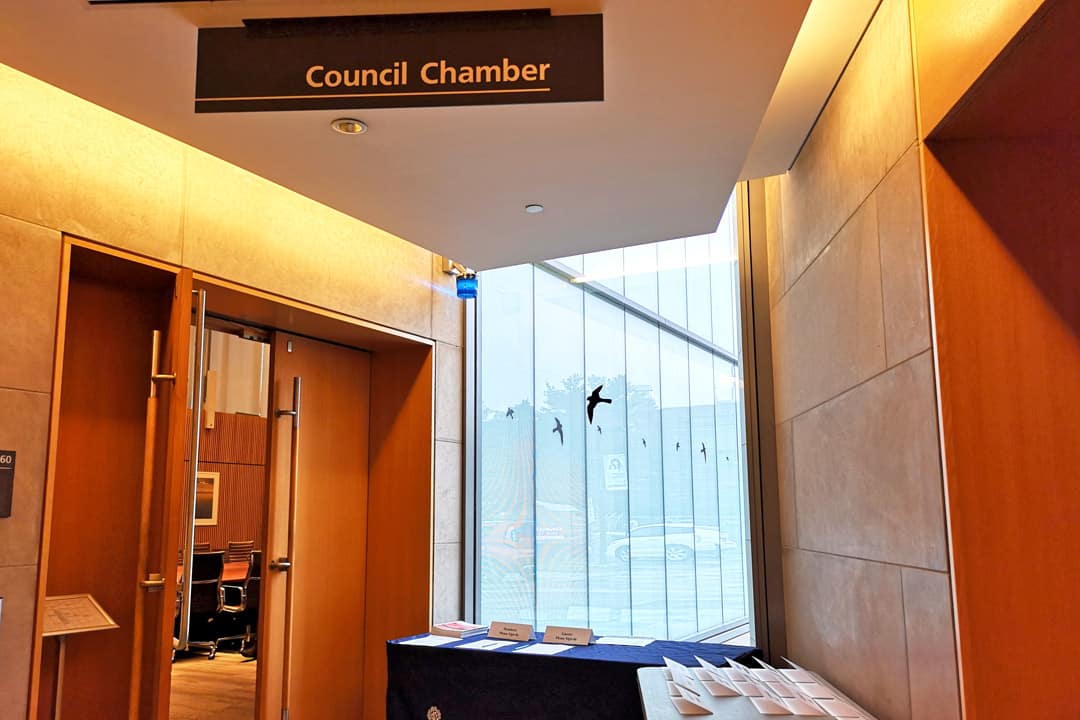The UTSC Academic Affairs Committee and the UTSC Campus Affairs Committee held their first meetings of the 2021–2022 academic year on September 13 and September 14, respectively.
A report presented to the Academic Affairs Committee revealed that academic petitions — formal requests to the university for an exception to academic rules and restrictions — decreased significantly in 2020, which the subcommittee attributed to more relaxed policies due to COVID-19.
Other reports from the Academic Affairs Committee showed that UTSC residences are operating at an 85 per cent capacity. Additionally, the committees heard information on new programs for international students at UTSC.
The Campus Affairs Committee also heard presentations on the Bicentennial Campaign’s priorities.
Shifting student experiences
An Academic Appeals subcommittee report, presented to the Academic Affairs Committee, displayed a dramatic decrease in the number of petitions filed by students in 2020 as compared to previous years.
From 2015 to 2019, the university saw a consistent increase in the number of petitions that were filed. 3,474 petitions were filed in 2019, but only 1,895 were filed in 2020, which the subcommittee attributed to students’ ability to use the credit/no credit and late withdrawal options liberally without having to petition. These options were made more widely available due to the pandemic.
In its presentation to the Campus Affairs Committee, the office of Student Experience and Wellbeing noted that a number of new initiatives had been established for incoming international students, including early virtual orientation programs, immigration advising, and check-ins with advisors where students were automatically enrolled for appointments.
The presentation also included an overview of the level of occupation in residences at UTSC. According to the report, UTSC residences are operating at 85 per cent capacity, with a reduction in the number of shared bedrooms on campus and the maintenance of a number of emergency isolation units in the case of a COVID-19 outbreak.
Campaign priorities
Trevor Young, U of T’s acting vice-president and provost, and David Palmer, vice-president advancement, shared information on the Bicentennial Campaign, which has succeeded the Boundless Campaign as an avenue for fundraising for the university. The campaign’s financial goal of $4 billion is expected to be achieved in two phases of donations.
The first phase of the campaign, characterized as the “quiet phase,” is anticipated to raise $1 billion. “Through the late fall of 2021, during which all of our approved academic funding priorities are identified, we build a case for both the university as a whole and the divisions, we identify volunteer leadership, and we solicit key gifts,” Palmer explained.
The second phase will be public and will begin in late 2021. It will reach out to “alumni and friends broadly with strong communication support.” Aside from the fundraising goal, the campaign also sets out an alumni engagement goal of “1 million instances of engagement from 225,000 unique alumni.”
The campaign priorities will go to the Governing Council for approval on October 28, after which the campaign will be officially launched with a virtual event in late fall.
Both meetings touched upon the method of course delivery for the upcoming winter semester. “We want to wait to see how the in-person experience this fall informs how we feel about moving forward,” said William Gough, vice-principal academic & dean at the Academic Affairs Committee meeting.


